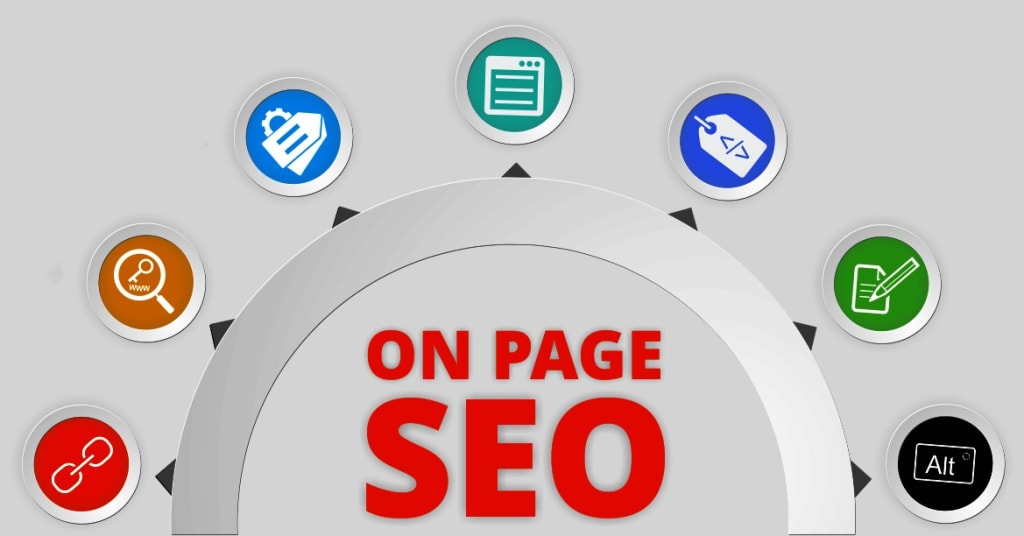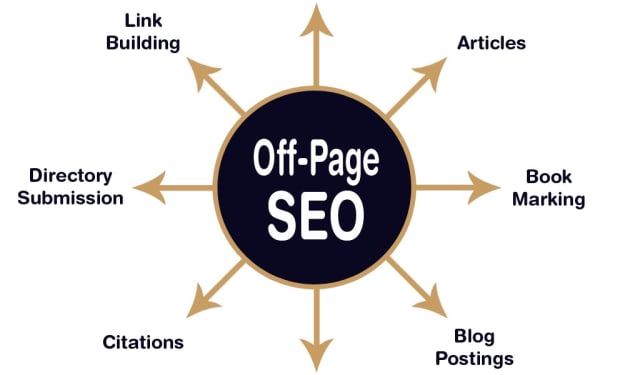10 Effective Strategies for On-Page SEO Optimization
On-Page SEO Optimization

Introduction
Search Engine Optimization (SEO) is an essential aspect of digital marketing services, and on-page SEO plays a crucial role in improving website visibility and organic search rankings. In this article, we will explore ten effective strategies that can enhance your on-page SEO efforts and drive more traffic to your website.
Understanding On-Page SEO
1.1 Importance of On-Page SEO
On-page SEO refers to the optimization techniques that are implemented directly on the website to improve its search engine rankings. It involves optimizing various elements within a web page to make it more search engine-friendly.
1.2 Difference between On-Page and Off-Page SEO
While on-page SEO focuses on optimizing elements within the website, off-page SEO concentrates on improving factors outside the website, such as link building and social media signals. Both on-page and off-page SEO work together to improve a website's overall visibility and search engine rankings.
Conducting Keyword Research
2.1 Importance of Keyword Research
In on-page SEO, keyword research is a crucial stage. It helps identify the relevant keywords and phrases that people use when searching for information related to your website. By targeting the right keywords, you can attract the right audience and improve your website's visibility in search engine results.
2.2 Tools for Keyword Research
There are several tools available to aid in keyword research, such as Google Keyword Planner, SEMrush, and Moz Keyword Explorer. These tools provide insights into search volumes, competition levels, and related keywords, helping you make informed decisions when optimizing your website.
Creating High-Quality Content
3.1 Writing Engaging and Relevant Content
High-quality content is the foundation of successful on-page SEO. It ought to be interesting, informative, and pertinent to your intended audience. By providing valuable content, you can attract more visitors, increase user engagement, and encourage them to stay longer on your website.
3.2 Incorporating Keywords in Content
While creating content, it's important to incorporate the targeted keywords naturally. Avoid keyword stuffing, as it can have a negative impact on user experience and search engine rankings. Instead, focus on writing informative and valuable content that naturally includes the targeted keywords.
Optimizing Title Tags and Meta Descriptions
4.1 Crafting Compelling Title Tags
Title tags are an essential on-page SEO element. Craft compelling and descriptive title tags that accurately reflect the content of your web page. Include the targeted keyword within the title tag to improve its relevancy and search engine visibility.
4.2 Writing Persuasive Meta Descriptions
Meta descriptions provide a brief summary of the content displayed on search engine result pages.Create compelling meta descriptions that persuade readers to visit your website. Including the targeted keyword and highlighting the unique selling points of your content can improve click-through rates.
Using Proper Heading Tags
5.1 Organizing Content with H1 Tags
H1 tags should be used to organize the main heading of your web page. It should accurately describe the content and incorporate the targeted keyword if relevant. Properly structuring your headings helps search engines understand the hierarchy and relevance of your content.
5.2 Enhancing Readability with H2 and H3 Tags
H2 and H3 tags can be used to organize subheadings within your content. These tags improve the readability and organization of your web page. Incorporate relevant keywords within these subheadings to enhance their SEO value.
Optimizing URL Structure
A clean and descriptive URL structure is beneficial for both search engines and users. Use descriptive words that accurately represent the content of the page. Avoid lengthy URLs and include the targeted keyword if possible.
Image Optimization
Optimizing images is crucial for on-page SEO. Compress images to reduce file size without compromising quality, add alt text with relevant keywords, and use descriptive filenames. Optimized images improve website load speed and enhance accessibility.
Internal Linking
Internal linking refers to connecting pertinent pages on your website. It helps search engines discover and index your content more effectively, improves website navigation, and distributes link equity. Include contextual links within your content to connect related pages and guide users to other valuable resources.
Page Load Speed
Page load speed is a crucial factor in on-page SEO. By reducing file sizes, utilising browser caching, and utilising content delivery networks (CDNs), you can improve the performance of your website. Improved user experience, lower bounce rates, and higher search engine rankings are all benefits of faster-loading pages.
Mobile Optimization
Your website must be mobile-friendly given the growing popularity of mobile devices. Ensure your website is responsive and mobile-friendly. Use responsive design techniques, optimize images for mobile devices, and provide a seamless user experience across different screen sizes.
Conclusion
Implementing effective on-page SEO strategies is vital for improving your website's visibility and attracting organic traffic. By understanding the importance of on-page SEO, conducting thorough keyword research, creating high-quality content, and optimizing various elements within your website, you can enhance your search engine rankings and drive more targeted traffic to your site.
FAQs
How soon may on-page SEO results be seen after implementation?
It depends on various factors such as the competitiveness of keywords, the quality of your content, and your website's authority. Generally, it can take several weeks to several months to see significant results from on-page SEO efforts.
Are on-page SEO techniques applicable to all types of websites?
Yes, on-page SEO techniques are applicable to all types of websites, including blogs, e-commerce sites, and informational websites. Optimizing on-page elements and creating valuable content can benefit any website.
Can I optimize my website for multiple keywords?
Your website can be optimised for many keywords, yes. However, it's important to maintain relevancy and ensure that the content aligns with the targeted keywords. Avert keyword stuffing and concentrate on giving your viewers something useful.
Is on-page SEO enough to rank high in search engine results?
On-page SEO service is an essential aspect of ranking high in search engine results, but it's not the only factor. Off-page SEO, including backlinks and social signals, also plays a significant role. A comprehensive SEO strategy combines both on-page and off-page optimization techniques.
What typical on-page SEO errors should you steer clear of?
Some common on-page SEO mistakes to avoid include keyword stuffing, using irrelevant or duplicate content, neglecting meta tags and headings, and ignoring website performance and mobile optimization. It's important to stay updated with the latest SEO best practices and avoid these common pitfalls.
About the Creator
Vaibhav Pandya
Vaibhav Pandya is the Chief Operating Officer (COO) and Senior Contributing Editor at IndyLogix - Digital Marketing Agency, where he has spent 9+ years growing the organization and establishing it as a credible market leader.






Comments
There are no comments for this story
Be the first to respond and start the conversation.